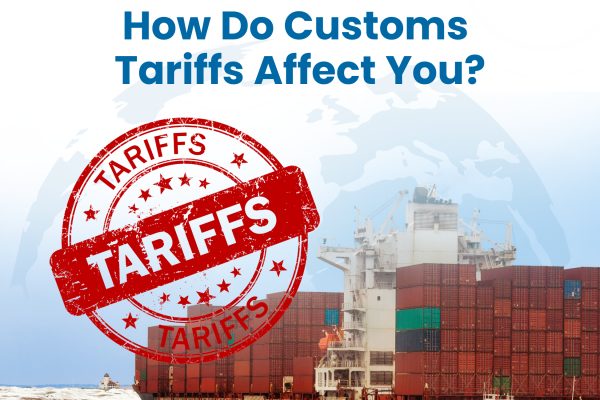Customs tariffs have been in the news more than usual lately due to speculation about what Donald Trump might do when he is back in the White House. Theoretically any tariffs he introduces over there would affect our exporters, not Aussie importers, although there is always the possibility that components of any completed product you bring in could be impacted somewhere along the supply chain.
The conversation about tariffs grew during President Trump’s first term in office as part of his protectionist policy, which was known as “America First.” So, did the Trump tariffs work in the end? According to economists from various nonpartisan and bipartisan think tanks, the answer is a resounding no.
No Cause for Alarm
Aussie exporters should not be affected too much by any policy changes in the USA, as our trade is underpinned by the Australia-United States Free Trade Agreement (AUSFTA) which came into effect in 2005. Unlike a lot of other countries, we have a ‘trade in goods deficit’ with the USA, which puts us in a good position to negotiate bilateral deals with them.
How Customs Tariffs Affect You
What Australian importers are really interested in is how Customs Tariffs affect them and their business.
Generally speaking, all goods imported into Australia are liable for duties and taxes unless an exemption or concession applies. However, most imports into Australia are now duty-free and the remainder are subject to low tariff rates.
Now that they are so small, both in level and coverage, Australia’s low-tariff environment is unlikely to provide significant protection to industry, nor significant distortions to production and consumption.
Tariffs are only applied to a small number of imports, with nearly 90% of products entering Australia duty-free. A tariff of 5% is paid on about 10% of imports, raising about $1.5 billion in revenue (this represents about 0.3% of revenues collected by the Australian Government).
Benefits of Reforms Removing ‘Nuisance Tariffs’
Early in 2024, the Australian Government announced it would abolish around 500 ‘nuisance tariffs’ in the biggest unilateral tariff reform in two decades to boost productivity, reduce compliance costs for businesses and ease the cost of living for Australian families by over $120 million over the next four years.
From 01 July 2024, tariffs were abolished on a range of imported goods including household necessities such as toothbrushes, tools, fridges, dishwashers and clothing. These tariffs did nothing to protect Australian businesses because they applied to goods that often arrive under a concessional rate anyway.
The tariff reform can improve the efficiency of your supply chain in several ways. It should lead to faster Customs Clearance and a streamlining of import documentation requirements, further reducing administrative burdens.
Thanks to successive trade agreements, Aussie businesses no longer need to spend time and money proving their imports are eligible for existing tariff preferences and concessions. These efficiency gains can free up valuable resources within your organisation, allowing you to focus on your core activities.
Colless Young should be your first stop for all Customs matters. We are here to help you navigate any changes to tariffs and reap the full benefits of recent reforms.
Contact Andrew, email enq@collessyoung.com.au Tel: +61 7 3890 0800.

